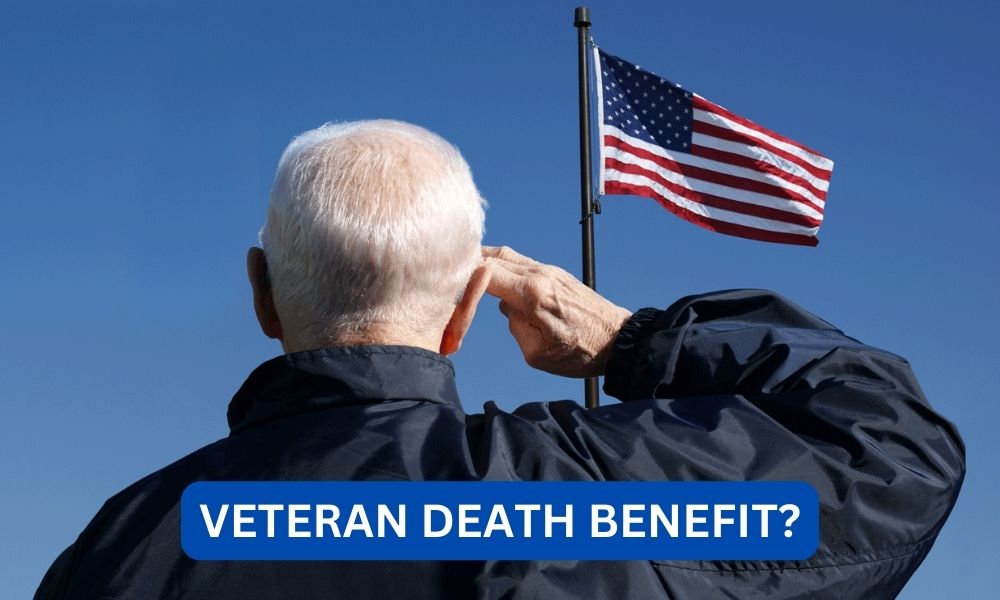The sacrifices made by veterans in service to their country are immeasurable. These brave men and women put their lives on the line to protect their fellow citizens and defend their nation’s values. However, when a veteran passes away, their loved ones are often left with the burden of arranging their funeral and dealing with the financial implications of their death. This is where death benefits for veterans come into play.
Death benefits are financial benefits provided to the families of deceased veterans to help cover funeral expenses and provide support during a difficult time. These benefits are an important way for the government to honor the service and sacrifice of veterans and provide assistance to their families. In this article, we will explore the various death benefits available to veterans and their families, eligibility requirements, and how to apply for them.
Contents
Types of Death Benefits for Veterans
There are several types of death benefits available to veterans and their families, each with its own eligibility criteria and application process. These benefits include:
- Death Pension: This is a tax-free monetary benefit paid to the surviving spouse or dependent children of a deceased veteran with limited income and assets. The amount of the pension is based on the veteran’s service and the financial need of the family.
- Dependency and Indemnity Compensation (DIC): DIC is a tax-free monthly benefit paid to the surviving spouse, children, or parents of a veteran who died as a result of a service-related injury or illness. The amount of DIC is based on the veteran’s service and the severity of their disability at the time of death.
- Survivors’ and Dependents’ Educational Assistance (DEA): This benefit provides education and training opportunities to the surviving spouse or children of a veteran who died in the line of duty or as a result of a service-related injury or illness. The program offers up to 45 months of education benefits, which can be used for degree and certificate programs, apprenticeships, and on-the-job training.
- Death Gratuity: The death gratuity is a one-time payment of $100,000 made to the surviving spouse or designated beneficiary of a service member who dies while on active duty or within 120 days of separation from the military. This benefit is tax-free and is intended to help cover immediate expenses such as funeral costs.
- Burial Benefits: The Department of Veterans Affairs (VA) provides burial benefits to eligible veterans, including a gravesite in a national cemetery, a headstone or marker, and a burial flag. The VA also offers a burial allowance to help cover funeral and burial expenses.
Eligibility for Death Benefits
To be eligible for death benefits, the veteran must have served in the military and been discharged under conditions other than dishonorable. The specific eligibility requirements for each benefit may vary, but in general, the veteran must have served for a certain period of time and have a service-related disability or have died as a result of a service-related injury or illness.
Read:How can a nation benefit from effectively exporting its goods?For example, to be eligible for DIC, the veteran must have died as a result of a service-related injury or illness, or have had a service-connected disability rated as totally disabling for at least 10 years prior to their death. To be eligible for the death gratuity, the service member must have died while on active duty or within 120 days of separation from the military.
Additionally, the surviving spouse or dependent children must meet certain income and asset requirements to be eligible for the death pension. The DEA program has specific eligibility criteria for surviving spouses and children, including age and marital status. The VA also offers burial benefits to eligible veterans, including those who died while on active duty, were discharged under conditions other than dishonorable, or were receiving VA benefits at the time of their death.
Applying for Death Benefits
The process of applying for death benefits can be overwhelming for families who are already dealing with the loss of a loved one. However, it is important to apply for these benefits as soon as possible to ensure timely assistance. The application process may vary depending on the type of benefit, but in general, it involves submitting a completed application form and supporting documents to the VA.
Read:Who benefits the most from affirmative action?For the death pension, the surviving spouse or dependent children must complete and submit VA Form 21P-534EZ, “Application for DIC, Death Pension, and/or Accrued Benefits.” They must also provide documentation of the veteran’s service and discharge, as well as their income and assets. The VA may also require a medical examination to determine the cause of death and the veteran’s service-related disability.
To apply for DIC, the surviving spouse or dependent children must complete and submit VA Form 21P-534EZ, along with documentation of the veteran’s service and discharge, as well as their death certificate and any medical evidence related to the cause of death. The VA may also require a medical examination to determine the cause of death and the veteran’s service-related disability.
The application process for DEA involves completing and submitting VA Form 22-5490, “Dependents’ Application for VA Education Benefits.” Surviving spouses must also provide a copy of their marriage certificate, while children must provide a copy of their birth certificate. The VA may also require additional documentation, such as a death certificate or proof of the veteran’s service-related disability.
To apply for the death gratuity, the designated beneficiary must complete and submit DD Form 397, “Claim Certification and Voucher for Death Gratuity Payment.” They must also provide a copy of the service member’s death certificate and proof of their relationship to the service member.
Read:How long does an employer have to contest unemployment benefits?For burial benefits, the funeral director or the person in charge of the veteran’s final arrangements must complete and submit VA Form 21P-530, “Application for Burial Benefits.” They must also provide a copy of the veteran’s discharge papers and death certificate, as well as any receipts for funeral and burial expenses.
Additional Resources for Families of Deceased Veterans
In addition to death benefits, there are other resources available to families of deceased veterans to help them cope with their loss and navigate the financial implications of their loved one’s death. These resources include:
- Survivor Outreach Services: This program provides support and assistance to families of fallen service members, including help with accessing benefits and resources, financial counseling, and emotional support.
- Tragedy Assistance Program for Survivors (TAPS): TAPS offers support and resources to families of fallen service members, including peer support, grief counseling, and assistance with benefits and financial planning.
- Gold Star Families: Gold Star Families are the immediate family members of service members who died while serving in the military. These families are eligible for certain benefits and resources, including access to the Gold Star Family Registry and the Gold Star Family Support Program.
Conclusion:
The death of a veteran is a difficult and emotional time for their loved ones. However, the government provides death benefits to help ease the financial burden and honor the service and sacrifice of these brave men and women. It is important for families to understand the various benefits available to them and the eligibility requirements and application process for each. Additionally, there are other resources available to support families during this difficult time. If you are a family member of a deceased veteran, be sure to explore these benefits and resources to ensure you receive the support and assistance you deserve.









